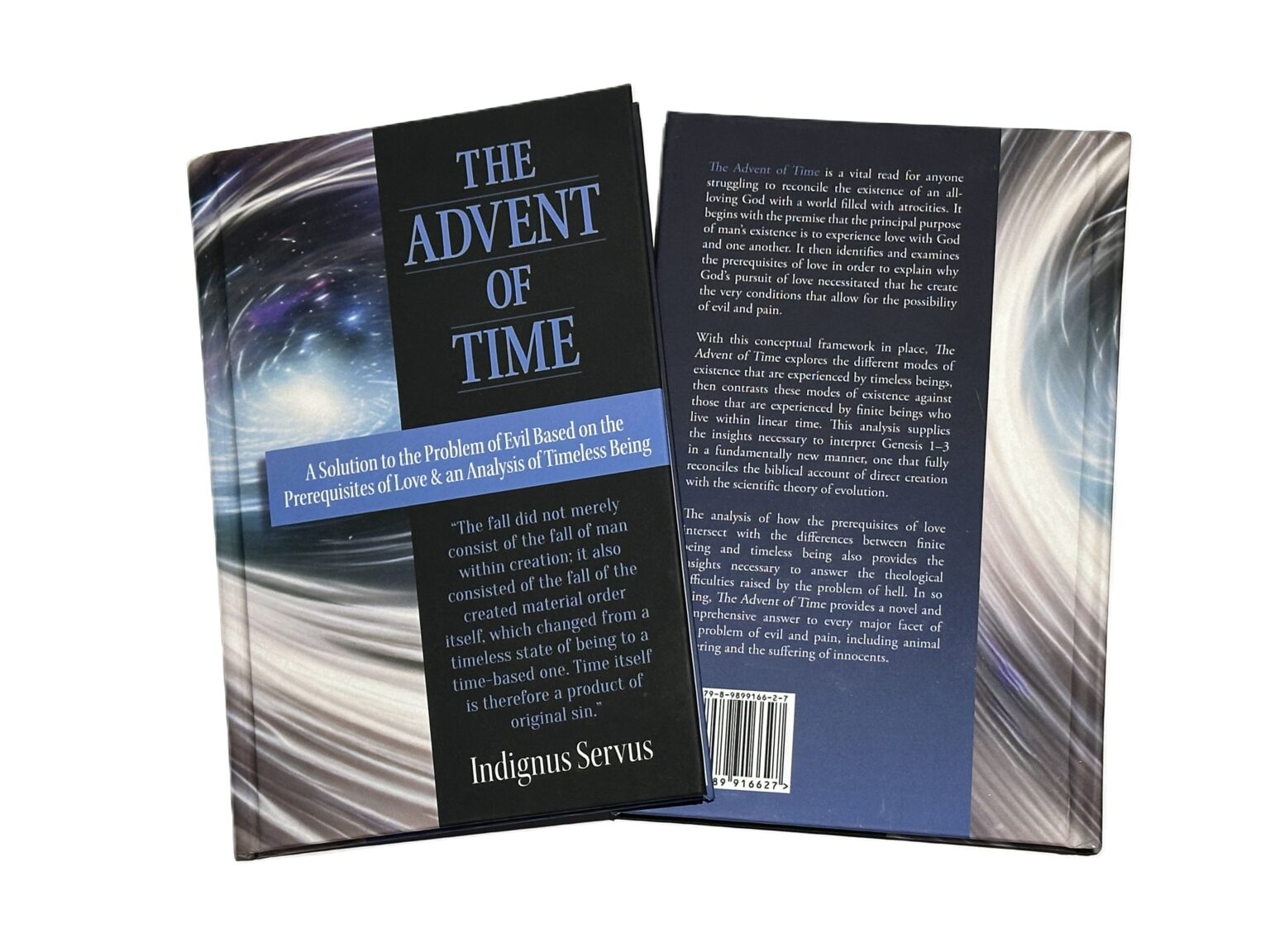eBook & Paperback

From the Back Cover
From the Back Cover
The Advent of Time is a vital read for anyone struggling to reconcile the existence of an all-loving God with a world filled with atrocities. It begins with the premise that the principal purpose of man’s existence is to experience love with God and one another. It then identifies and examines the prerequisites of love in order to explain why God’s pursuit of love necessitated that he create the very conditions that allow for the possibility of evil and pain.
From the Back Cover
The Advent of Time is a vital read for anyone struggling to reconcile the existence of an all-loving God with a world filled with atrocities. It begins with the premise that the principal purpose of man’s existence is to experience love with God and one another. It then identifies and examines the prerequisites of love in order to explain why God’s pursuit of love necessitated that he create the very conditions that allow for the possibility of evil and pain.
With this conceptual framework in place, The Advent of Time explores the different modes of existence that are experienced by timeless beings, then contrasts these modes of existence against those that are experienced by finite beings who live within linear time. This analysis supplies the insights necessary to interpret Genesis 1–3 in a fundamentally new manner, one that fully reconciles the biblical account of direct creation with the scientific theory of evolution.
The analysis of how the prerequisites of love intersect with the differences between finite being and timeless being also provides the insights necessary to answer the theological difficulties raised by the problem of hell. In so doing, The Advent of Time provides a novel and comprehensive answer to every major facet of the problem of evil and pain, including animal suffering and the suffering of innocents.
Why did God not take some sort of action to prevent the negative consequences of original sin from affecting anyone other than the first humans? For example, if God had simply devised a way to shelter other beings from the negative consequences of the sinful decision-making of the first humans, God could have prevented untold experiences of suffering. But if God had divested human beings of their ability to affect others through their decision-making, God would have simultaneously divested humanity of its ability to experience love. The same outcome would occur if God were to divest man of any of the other prerequisites necessary for love.